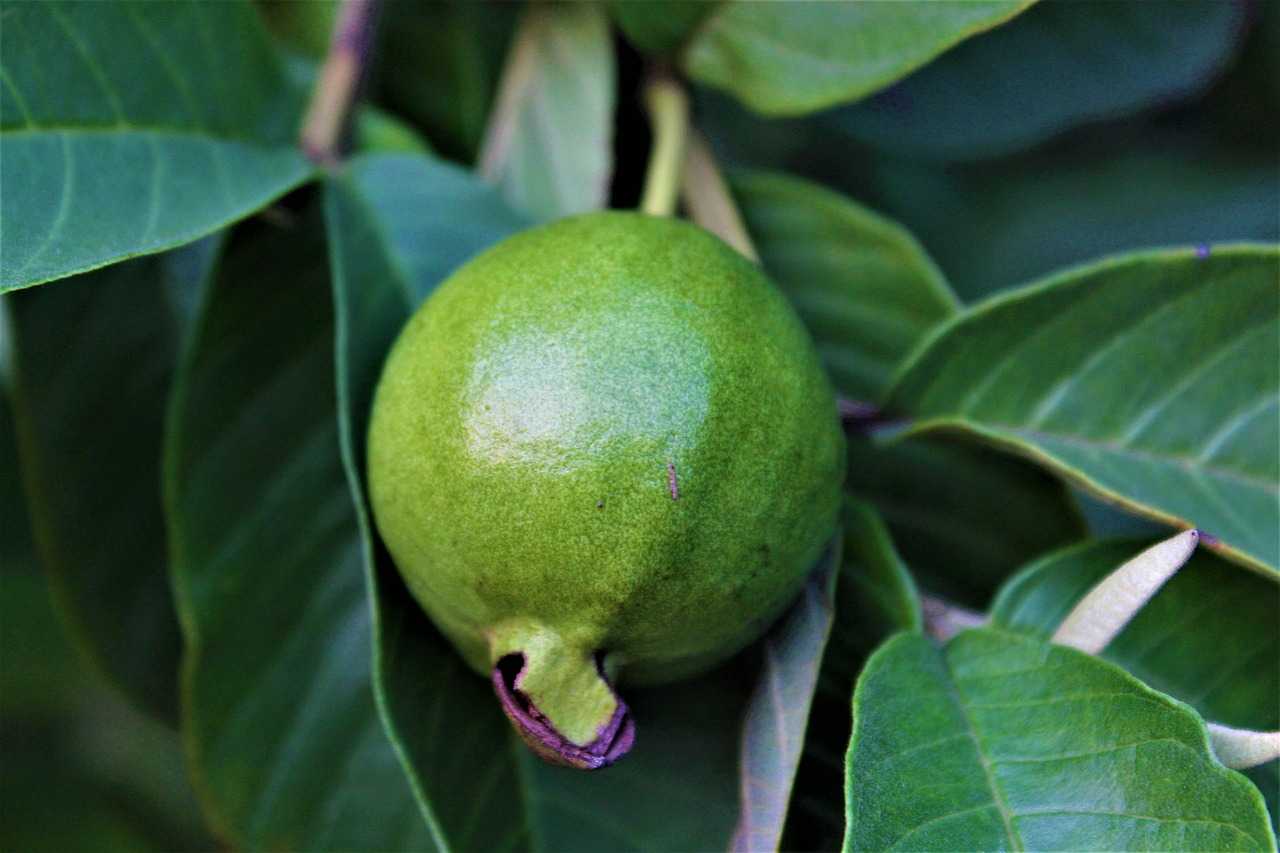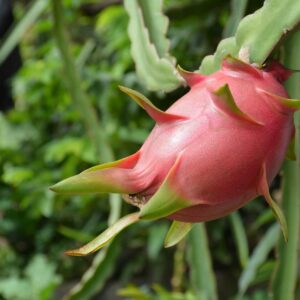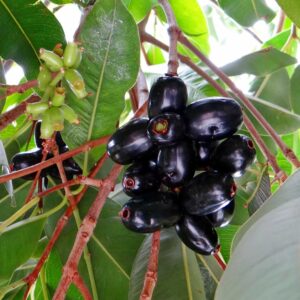Introduction
Guava, scientifically known as Psidium guajava, is a tropical evergreen plant that belongs to the Myrtaceae family. It is native to Central and South America but is now grown in many tropical and subtropical regions around the world.
The guava plant is a small to medium-sized tree that can grow up to 10 meters tall in the right conditions, although it is often pruned to a smaller size for easier cultivation. It has a shallow root system and a smooth, copper-colored bark.
The leaves are evergreen, ovate in shape, and 5 to 15 centimeters long. The guava plant produces fragrant white flowers, which are followed by round or oval-shaped fruit that can range in color from green to yellow to pink.
Click on the headings to read more!
Benefits
Easy to Grow:
Our guava plant is easy to grow, even for beginners. It requires minimal care and maintenance, making it ideal for home gardens.
Cost-Effective:
Growing your own guava saves money on expensive store-bought fruits while allowing you to enjoy the satisfaction of growing your own food.
Beautiful Addition to Your Garden:
Our guava plant features lush green foliage and produces beautiful, fragrant white flowers, adding beauty to your garden. At Plants Jar, you can find a variety of other plants to complement your guava plant, such as the Dragon Fruit Plant, and the Thailand Pink Jackfruit Plant.
Planting care for Guava Plant
Site Selection:
When planting guava, it’s important to choose a sunny location with well-draining soil. Since guava thrives in warm climates, it’s also important to avoid areas that are susceptible to frost.
Following Vastu guidelines, it’s recommended to plant guava in the north-west direction of your garden or house. This not only ensures proper growth and development of the plant but also attracts positive energy to your surroundings.
Soil Preparation:
Guava thrives in slightly acidic soil with a pH range of 5.5 to 7.0. Amend the soil with organic matter, such as compost or well-aged manure, before planting.
Planting:
Dig a hole twice as wide and deep as the root ball of the guava plant. Gently remove the plant from its container and place it in the hole, making sure the root ball is level with the soil surface. Fill the hole with soil and water thoroughly.
Watering:
Water the guava plant regularly to keep the soil moist but not waterlogged. Reduce watering during the winter months.
Fertilizing:
Fertilize the guava plant with a balanced fertilizer, such as 10-10-10, every three months during the growing season.
Pruning:
Prune the guava plant regularly to remove dead or diseased wood and promote healthy growth. Prune after fruiting to shape the plant.
Pest and Disease Control:
Guava plants can be susceptible to various diseases and pests. Here are some of the common guava plant problems and their solutions:
Guava Fruit Fly:
This is one of the most common pests that attack guava plants. The fruit fly lays its eggs on the fruit, which hatch into maggots and cause the fruit to rot. To control this pest, you can use insecticides.
Guava Whitefly:
This pest sucks the sap from the leaves, causing yellowing and wilting. You can control this pest by using insecticides like neem oil or horticultural oil.
Red-banded Thrips:
These tiny insects feed on the leaves and fruits, causing stunted growth and deformation.
Guava Rust:
This is a fungal disease that causes rust-colored spots on the leaves and fruit. To control this disease, you can use fungicides.
Guava Wilt:
This is a soil-borne disease caused by fungi. It causes yellowing of leaves, wilting, and ultimately death of the plant. You can control this disease by using fungicides.
Root Knot Nematode:
This is a soil-borne pest that causes galls or knots on the roots, leading to stunted growth and poor fruit quality. To control this pest, you can use nematicides.
Remember to always follow the instructions on the label when using any insecticide or fungicide. Additionally, proper cultural practices such as good sanitation, pruning, and fertilization can help prevent and control many guava plant diseases and pests.




Reviews
There are no reviews yet.